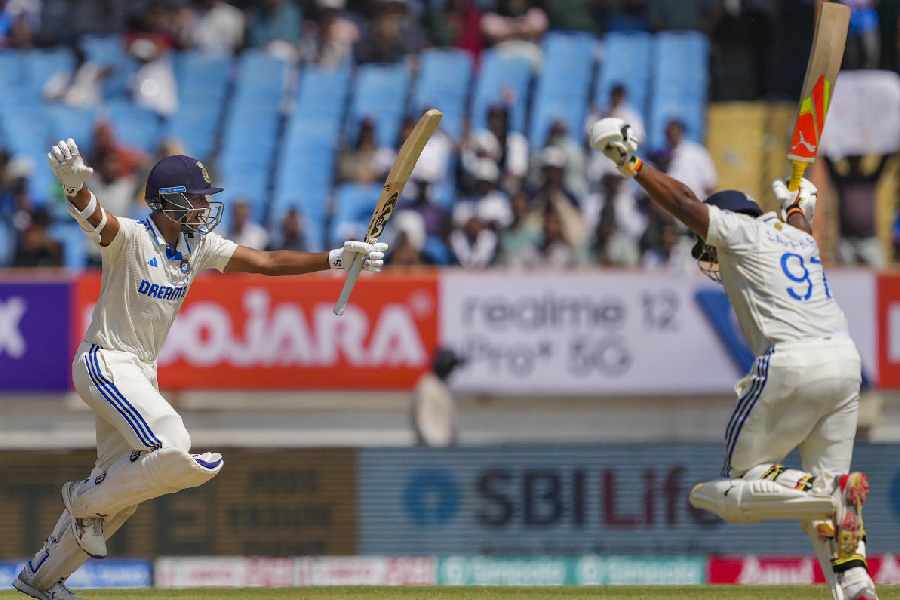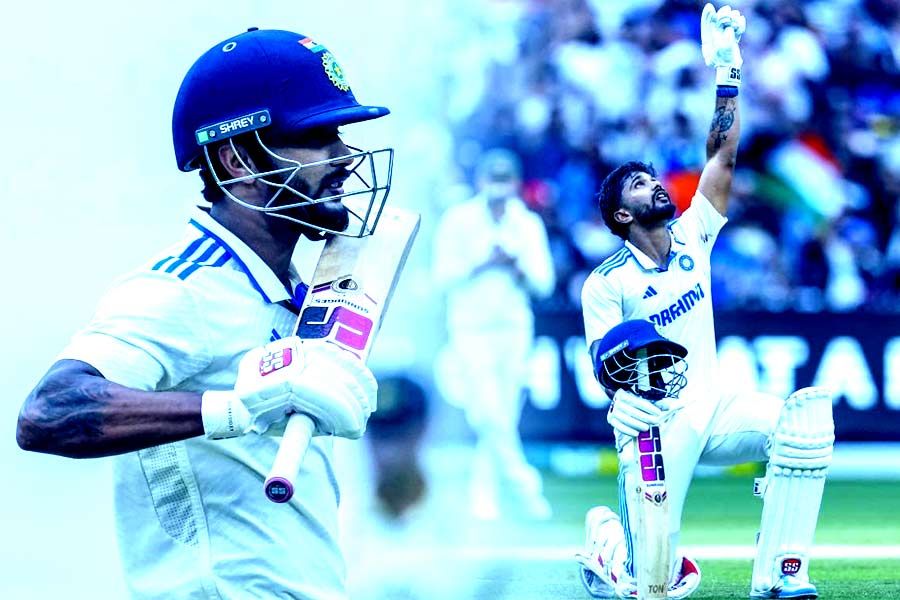In the dramatic canvas of Test cricket, narratives clash, records tumble, and legends are born. The third Test of the India-England series was no exception, turning into a battleground where traditional cricketing wisdom met the modern, aggressive approach known as "Bazball". Yet, under the Rajkot sun, it was Yashasvi Jaiswal's monumental double century and Ravindra Jadeja's crafty five-wicket haul that scripted a narrative of dominance, proving, perhaps, that "Jais-ball" was a force too potent for England's "Bazball".
India's emphatic victory by a record 434 runs not only etched this match into the annals of cricketing lore but also underscored the depth and prowess of the Indian cricket team. This was not merely a game won; it was a statement made, loud and clear, as India now leads the five-match series 2-1.
Jais-ball grinds visitors; Sir Jadeja seals deal
Yashasvi Jaiswal's unbeaten 214 was a spectacle of sheer batting brilliance. His innings, studded with a record-equaling 12 sixes, was not just about the runs but the manner in which they were scored. It was an exhibition of controlled aggression, of choosing the moments to strike and the balls to send soaring over the ropes. Jaiswal, with this innings, didn't just score runs; he intimidated, he dominated, and he set records tumbling, becoming the first player in the series to hit 20 sixes, with two matches still in the offing.
On the other side of India's triumph was Ravindra Jadeja, whose figures of 5/41 in the second innings were a masterclass in spin bowling. Jadeja's spell was not just effective; it was decisive, breaking the back of the English batting lineup and ensuring that the massive target set by India became a distant dream for England. His ability to exploit the conditions, to read the batsmen, and to strike at the heart of England's ambitions was pivotal in setting up India's historic win.
Baz-fall: A Tactical Misstep in a ‘dicey’ subcontinent deck?
England's approach, famously dubbed "Bazball" for its aggressive batting strategy under the coaching of Brendon McCullum and captaincy of Ben Stokes, faced its litmus test in Rajkot. The strategy, which had revitalized England's Test fortunes, seemed at odds with the conditions and the quality of spin bowling India offered. The Indian bowlers, especially Jadeja, exploited the aggressive intent of the English batsmen, leading to their downfall for a paltry 122 in the second innings.
This match was not just a victory for India; it was a celebration of cricketing excellence. Records were set and broken - India's biggest win in Test cricket in terms of runs, Jaiswal's record-equalling number of sixes in a Test innings, and the list goes on. Each record tells a story, not just of personal achievement but of a team that came together to produce something extraordinary.
India's Ascendancy in the WTC Standings
India's victory by a record margin has not just bolstered their position in the series against England but has significantly enhanced their standing in the ICC World Test Championship. Such victories are crucial, as points in the WTC are awarded for wins, ties, and draws, with the magnitude of victory not directly impacting the points but certainly boosting the team's confidence and run rate, potentially playing a role in tie-break situations.
For England, this defeat poses a challenge but not the end of their aspirations in the WTC. The loss requires a recalibration of their approach, especially when playing in subcontinental conditions. England's strategy, often revolving around aggressive batting and pace-oriented bowling, might need a tweak to incorporate more spin-friendly options and a batting lineup that can withstand the guile of Indian spinners.
The WTC points system, designed to give equal weightage to each series regardless of its length, means that every match, every innings, and indeed every decision on the field can have far-reaching implications on the standings. Teams are now more strategic, not just about their in-match decisions but also about their series planning, player workload management, and even the pitches they choose to play on.
As the current cycle of the WTC progresses, each series becomes a stepping stone towards the final. India's win adds a significant number of points to their tally, enhancing their chances of reaching the WTC final. However, the road is still long, and with teams like Australia, New Zealand, and Pakistan in the fray, the competition remains wide open.
The victory in Rajkot is more than just a win in a cricket match; it's a statement of intent from India, a showcase of their depth and versatility, and a pivotal moment in their WTC campaign. As we move forward, the impact of this win on the WTC standings will be closely watched by fans and analysts alike, making every match in the championship a must-watch event.











